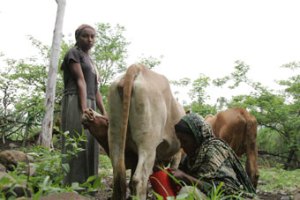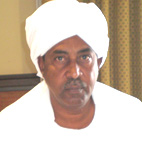
Livestock play key role in fostering the livelihoods of rural communities in the IGAD Region
A working paper on “Livestock and Livelihoods in the IGAD Region: A Policy and Institutional Analysis” is published by IGAD LPI. The paper is written by Ugo Pica-Ciamarra from FAO Animal Production and Health Division, Simplice Nouala from AU-IBAR and Sunae Kim from FAO Regional Office for the Near East.
This paper presents an analysis of livestock sector policies and institutions in the IGAD region to assess if and how they support inclusive development of the sector. It first reviews the objectives of major livestock related policies in the IGAD region and the development narratives that drive them. It then compares these objectives and narratives with the livelihood strategies pursed by poor men and women livestock keepers, as identified through the IGAD Livestock Policy Initiative (IGAD LPI).
The paper recognises that policies have their effect by changing the ‘rules of the game’, often called institutions, under which people pursue varied livelihood strategies. In particular, people will only benefit from policies when the resulting institutions open up livelihoods options to which they are capable of responding. Their capacity to respond depends on their assets and skills, which are invariably more constraining for poorer groups and women, and that are often already reflected in their existing livelihoods strategies.
The review of livestock related policies at pan-African, regional and country level, together with donor priorities, reveals a dominant development paradigm emphasising increased livestock productivity and marketing. Such an emphasis, as documented by the IGAD-LPI, results in realistic livelihoods options only being made available to wealthier livestock keepers and in so doing fails to support the livestock dependent poor. Although policies for increased production and sales may be essential to develop the sector, they are not sufficient on their own to support those households who, in their efforts to secure their livelihoods, build on all the broader livelihoods services provided by livestock, which represent, inter alia, a source of food, income, manure, draught power and hauling services, savings, insurance and social capital.
The paper further finds that the majority of livestock sector policies and programmes affecting the region focus on technical fixes to the exclusion of institutional dimensions and that there is little coordination in the development and implementation of the various policies and programmes, at both regional and country levels. Yet, policies are likely to succeed in poverty reduction only when they deliver changes in institutional mandates and administrative processes, and are consistent with the system of incentives which underpin poor livestock keepers’ behaviour, In addition, an inclusive development of the livestock sector requires that a coherent set of policies be designed and implemented, including policies within and beyond the livestock domain (e.g. trade, cropping, environmental or credit policies).
The paper recommends that first and foremost, the dominant ‘production and market access’ narrative should be enhanced by a development paradigm that also appreciates the many livelihoods services provided by livestock, including both monetary and non-monetary services. An enhanced livestock-livelihoods narrative would ensure that most future policies, programmes and projects, by adhering to the new paradigm, will build on the many livelihoods services provided by livestock, thereby supporting a pro-poor development of the sector. It also recommends that policies, programmes and projects should be designed through an inclusive process that embraces dialogue and the use of evidence to address institutional dimensions, and that some effective coordination be established between AU-IBAR, RECs and national governments; between RECs; and between livestock related policies at national level.
The paper recognizes that AU-IBAR, RECs and national governments could contribute towards addressing the above recommendations, but notes that IGAD, in partnership with AU-IBAR, has generated encouraging experiences in this respect, through IGAD-LPI.











